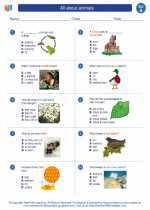Triglycerides
Triglycerides are a type of fat (lipid) found in your blood. When you eat, your body converts any calories it doesn't need to use right away into triglycerides. The triglycerides are stored in your fat cells. Later, hormones release triglycerides for energy between meals. If you regularly eat more calories than you burn, particularly "easy" calories like carbohydrates and fats, you may have high triglycerides.
Structure of Triglycerides
Triglycerides are composed of a glycerol molecule and three fatty acids. The fatty acids can be saturated, monounsaturated, or polyunsaturated. The combination of these fatty acids determines the properties of the triglyceride.
Functions of Triglycerides
Triglycerides serve as a source of energy for the body. They also help in the absorption of fat-soluble vitamins and provide insulation to help keep the body warm.
Effects of High Triglycerides
High levels of triglycerides in the blood can increase the risk of heart disease, stroke, and other cardiovascular diseases. It is important to maintain healthy levels of triglycerides through diet and exercise.
Study Guide
- What are triglycerides?
- Describe the structure of triglycerides.
- What are the functions of triglycerides in the body?
- What are the effects of high triglyceride levels?
◂Science Worksheets and Study Guides First Grade. All about animals

 Worksheet/Answer key
Worksheet/Answer key
 Worksheet/Answer key
Worksheet/Answer key
 Worksheet/Answer key
Worksheet/Answer key
 Worksheet/Answer key
Worksheet/Answer key
 Vocabulary/Answer key
Vocabulary/Answer key
